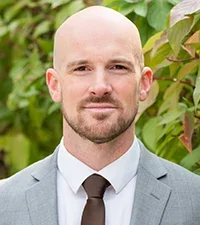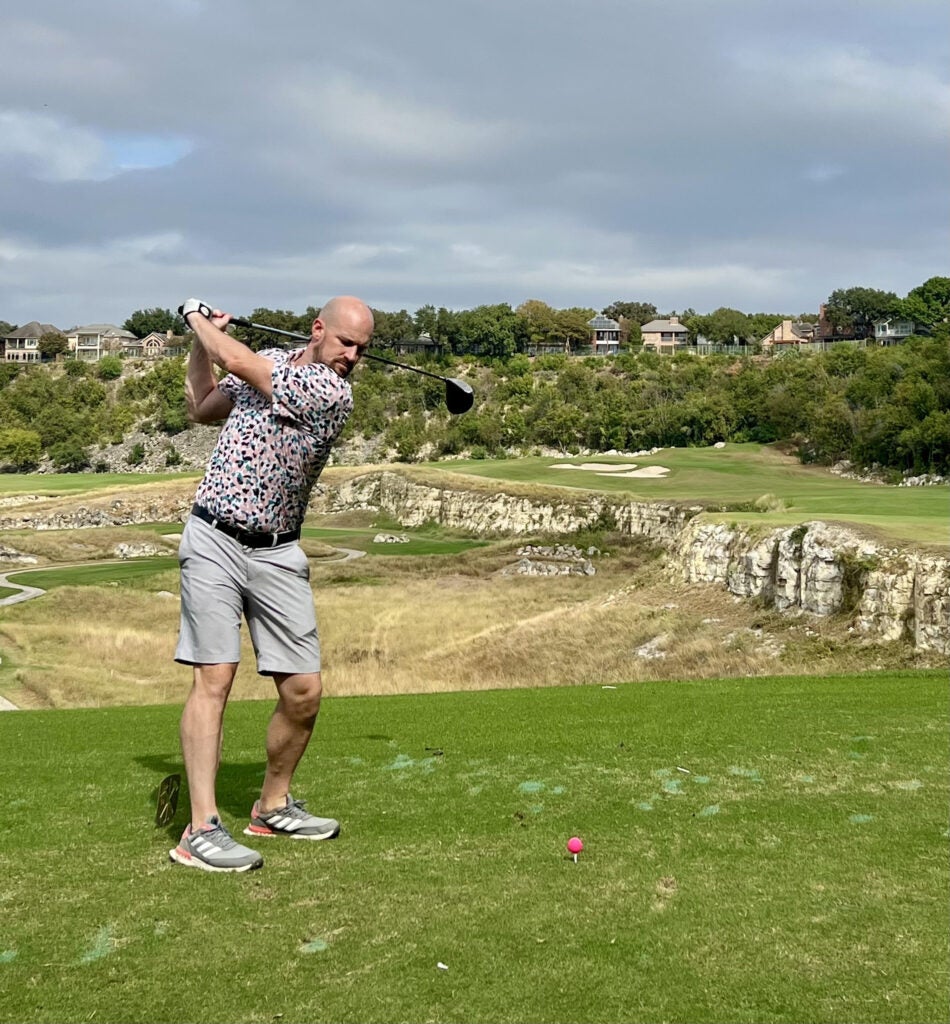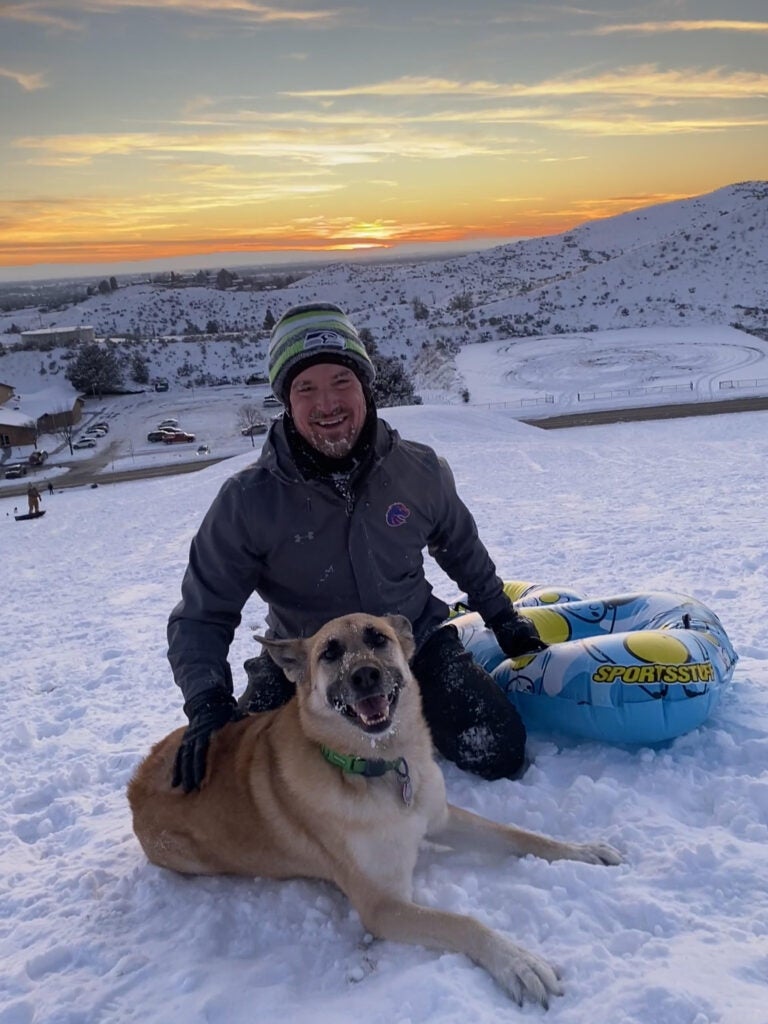How long have you been a professor? How long have you been teaching at Boise State?
I have been here at Boise State since 2018 so this is my 7th academic year. Before that, I taught for three years as a graduate student at Florida State University.

What has made you the instructor you are today? What qualities or values do you hope to reflect to your students?
First of all, a lot of kind people inspired and supported my vision of becoming a professor, and I try to pay that kindness forward to my students.
The values that are important to me in the classroom are:
- Curiosity – I hope my curiosity and enthusiasm for these subjects are contagious and inspire my students to pursue further inquiry and experimentation throughout their lives.
- Critical Thinking – Applied psychology and sociology are far from settled sciences, so critical thinking and exploration are essential to improving conventional business practices. There is a lot of snake oil for sale out there, so I emphasize evidence-based practices and encourage my students to think critically about the topics we cover in class. I also push students to understand and critique theory so they can appropriately apply what they learn to help improve their lives.
- Personal and Professional Fulfillment – Money is important, but it is not everything. I want my students to recognize what they intrinsically value so they can build fulfilling personal and professional lives. I aim to achieve this by teaching actionable ways to improve their leadership and navigate human issues in organizations.
Tell us about your background before you entered into education? Where did you work and what professional professions did you hold?
In high school and college, I started a few home services businesses, including window washing and house painting. After graduating with a degree in finance, I worked at Wells Fargo for six years, holding roles as a teller, banker, business banker, and senior banker. This was before, during, and after the recession, which gave me a front row seat to a pivotal event in economic history. I was also there during many of the scandals that later made headlines, which taught me a great deal about the power of social influence for better or worse and ultimately inspired much of my graduate research.
There came a point when I was successful in my job but dreaded going to work. I realized I was just “playing the game” and no longer felt like I was making a meaningful difference in the lives of my clients. That prompted me to reflect on my purpose and pursue an MBA, which became a launching pad for earning my PhD in organizational behavior. My goal was to make a more direct impact by helping others find fulfillment in their professional lives
What makes you passionate about teaching organizational behavior and leadership?
Humans are fascinating. I am constantly amazed by our potential for greatness and equally baffled by the depths of our shortcomings. No matter what field you are in or aspire to join, navigating human issues within organizations is an essential skill. This gives me endless opportunities for creative inquiry and meaningful discussions with my students.
Many of my students aspire to climb the corporate ladder or start their own business, but even for those who have no desire to become formal leaders (I rarely was), learning informal leadership skills is critical to personal and collective success. The ubiquity and importance of organizational behavior and leadership are what fuel my passion for teaching these subjects.
What do you hope your students learn, achieve, or develop as a result of taking your courses?
One of my favorite student comments was along the lines of, “Liam, because of your class, I think I will be a better manager at work when the time comes, but I already know I am a better father and husband.”
That captures what I hope my students take away from my courses. I want them to understand the importance of becoming socially effective and to leave with tools to improve in this area. This includes understanding themselves and their values, teamwork, motivation, and navigating conflict. These skills are invaluable not just at work but also in personal and family relationships.
How do you ensure that your course is dynamic and has relevant, up-to-date content?
Organizational behavior and leadership examples are everywhere. I cannot watch a TV show or movie without noticing the principles I cover in class. Content from shows like Game of Thrones, The Office, and South Park are among my favorites for illustrating these concepts. Using contemporary pop culture examples makes it fun to update my course content and helps students connect with the material in ways that feel relevant and engaging.
Many of the topics we cover have scholarly roots dating back over a century. My role is to present both the historical foundations and current developments while encouraging students to critically evaluate contemporary perspectives. This approach helps them build the critical thinking skills needed to navigate their unique and complex organizational challenges.
Do you have any professional goals you are currently trying to achieve?
I have many professional goals, but one that stands out is strengthening relationships with professionals in our thriving business community. Business schools and local organizations offer countless opportunities for mutual benefit, such as service learning, consulting, research, internships, and student placement. I am focused on helping expand COBE’s impact on our local, state, and regional communities.
Tell us about your research interests. What’s of most interest to you at the moment? Of all your research, what are you most proud of in your career?
My research interests broadly focus on social influence and well-being at work. I study the challenges of organizational politics and explore how being socially motivated and effective can help individuals, teams, and organizations achieve their goals. I have also researched how and when workplaces can satisfy psychological needs, leading to well-being and improved performance.
Of all my work, what makes me most proud is collaborating with undergraduate and graduate students on research projects across a variety of topics. Seeing them unleash their curiosity and contribute to meaningful inquiry is incredibly rewarding.
What changes do you see from students at the beginning of your class to the end?
By the end of my class, students gain a deeper understanding of themselves, including their strengths, challenges, and values. They are equipped with frameworks to understand, influence, and inspire others. These tools enable them to make positive contributions to their organizations and drive meaningful change.
Any tips or advice for students who may be nervous about starting an MBA program?
Imposter syndrome is everywhere in graduate school. If you are considering an MBA but feeling nervous, know that you are not alone. Our job as educators is to help you expand your knowledge, grow as a person, and set you up for success.
Graduate school is challenging. When I have seen students fall short, it is usually because they did not fully understand what they were getting into or were not willing to prioritize the work. However, I cannot recall a time when it was due to a lack of ability or talent. If you have a clear purpose and are willing to put in the effort, I have no doubt you will succeed.
What personal interests or hobbies do you enjoy outside of the classroom?

I love to travel. I have been to 40 countries and 42 US states, and my rule is to visit at least one new country and one new state each year. Exploring new cultures and perspectives gives me a window into human behavior and helps me stay mindful of my own tendencies and biases.
I often go on long walks in nature while trying to find my golf ball. Golf brings me exercise, camaraderie with friends, and a chance to practice mental focus.
I am an avid fan of the Seattle Seahawks, Seattle Mariners, Florida State Seminoles, and Boise State Broncos. I love the sense of community that athletics and fandom create.
If you could have dinner with anyone, living or passed, who would it be?
I have always been fascinated by astronomy and deeply admire scientists who are also great communicators. If I could have dinner with anyone, it would probably be Carl Sagan or Neil deGrasse Tyson. Their ability to make complex ideas accessible and inspire curiosity about the universe is something I greatly respect.
